Durham ADAs Look For Way Around Open File Discovery
"Lawyers interviewed were unanimous that the state's recently enacted discovery laws, which require the prosecution to turn all their evidence over to the defense prior to trial, are a huge improvement in the system. They could've helped Gell, whose investigators sat on the evidence that he was in jail for something else on the day of the murder for which he was convicted."It appears the Indy failed to interview the Assistant District Attorneys working under Durham County District Attorney Mike Nifong.
Rather than worrying about complying with North Carolina's open file discovery statute, several Durham County Assistant District Attorneys have decided to follow the lead of their boss, rogue prosecutor Mike Nifong, and avoid interviewing witnesses in cases they prosecute. The decision comes following a briefing from the District Attorney, who is facing ethics charges from the North Carolina State Bar, in part, due to his own failure to comply with discovery laws. Discussing a recent appellate court decision that affirmed the statute which states prosecutors must turn over witness statements means that prosecutors must turn over witness statements, DA Nifong advised his staff to decide for themselves how to proceed. In interviews with the Herald Sun, Stormy Ellis and Jim Dornfried indicated reluctance to comply with the law that has been in effect since 2005 while suggesting they would follow Nifong's example in how to work around it.
The Herald Sun:
As ripples from the Duke lacrosse case continue to roil judicial waters, some Durham prosecutors have made a controversial decision to interview fewer witnesses, and to proceed ultra-cautiously when they do speak with crime victims, police officers and others.
The decision, which outrages defense lawyers, comes just five months after District Attorney Mike Nifong received torrents of criticism for not interviewing an exotic dancer who accused three Duke lacrosse players of sexually assaulting her during an off-campus party last year.
In fact, the woman wasn't even interviewed by the district attorney's investigator until December, more than half a year after the three Duke students were indicted on charges of kidnapping the accuser, raping her and committing a first-degree sex offense against her.
Following the December interview, Nifong dropped the rape allegations because of changes in the dancer's story. But felony kidnapping and sex-offense charges remained in place until last week, when the state attorney general dismissed them, eliminating the threat of 20 or more years in prison for defendants Collin Finnerty, Reade Seligmann and David Evans.
Nifong was away from his office Tuesday and could not be reached for comment.
But others said the decision to proceed cautiously with witness interviews had nothing to do with the lacrosse case, and they insisted Nifong had not promulgated an officewide policy to that effect.
Rather, the decision arose from a Cumberland County murder case in which the N.C. Court of Appeals ruled this month that prosecutors must make tape-recordings or notes of all conversations with witnesses and surrender them to defense attorneys.
In a nutshell, that puts prosecutors under a much stiffer burden than before.
Reacting to the decision Tuesday, local prosecutors made it clear they were speaking for themselves and not for Nifong.
Several said they resented the extra work imposed by the appellate ruling, and they also feared the consequences of making a mistake and possibly putting their law licenses in jeopardy. As a result, some indicated they would err on the side of caution and conduct fewer interviews, despite the recent avalanche of criticism that fell on Nifong's head in connection with the lacrosse case.
"It's frustrating for me," said Assistant District Attorney Jim Dornfried. "It ties my hands. Unless I have a tape recorder or a pad of paper handy, I might be reluctant to talk to people now. When I do conduct interviews, I will have to think very carefully about how I ask my questions. Otherwise, it could give away my case strategy."
Beyond that, such detailed note-taking might jeopardize confidential informants and derail major drug busts and other police operations, according to Dornfried.
"Each of us has to decide how to handle this," he said. "But if I have to choose between keeping my law license and talking to witnesses, I'll keep my license."
Assistant District Attorney Stormy Ellis, Durham's special gang prosecutor, agreed with that assessment Tuesday.
"It really does hamstring us," she said of the appellate decision. "I'm frankly just shocked and appalled by the new burden this puts on us. It basically turns us into investigators for the defense. It makes me tired even talking about it."
But Chief Assistant District Attorney David Saacks noted the appellate decision was not unanimous, meaning it could be fine-tuned by the state Supreme Court later. He said he would withhold further comment until then.
According to Saacks, Nifong discussed the appellate ruling with his assistants but did not dictate a new office policy as a result of it, leaving his subordinates to make their own judgment calls.
In defendant's next argument on appeal, she presents an issue of first impression: the statutory meaning and application of the term “witness statements” under the amended version of N.C. Gen. Stat. § 15A-903(a)(1)(2005). Defendant contends that the trial court committed prejudicial error by denying defense counsel's renewed discovery motion during trial, seeking notes of one or more pretrial conversations or interviews that the prosecutor had with Daisy Shannon. The record reflects that the trial court judge did not compel the prosecutor to reduce the substance of these interview(s) to writing, and this Court does not have such notes in the record. ( The record reflects that the prosecutor stated the following to the trial court in regards to his interview with Daisy Shannon: “I was particular to write down all the things she said the defendant said, and I may have written down some of my impressions about what she told me, but I didn't have any notes.. . . [A]s for talking with [Daisy] and taking notes of everything she said, I didn't do that.”) Defendant's argument has merit.
...
“Statutory interpretation properly begins with an examination of the plain words of the statute.” Correll v. Division of Social Services, 332 N.C. 141, 144, 418 S.E.2d 232, 235 (1992)(citation omitted). In interpreting statutory language, “it is presumed the General Assembly intended the words it used to have the meaning they have in ordinary speech. When the plain meaning of a statute is unambiguous, a court should go no further in interpreting the statute.” Nelson v. Battle Forest Friends Meeting, 335 N.C. 133, 136, 436 S.E.2d 122, 124 (1993) (citations omitted). ... The plain, unambiguous meaning of this requirement is that “statements” need not be signed or adopted by a witness before being subject to discovery. ... We next conclude that a writing or recording evidencing a witness' assertions to a state prosecutor can qualify as “witness statements” under Section 15A-903(a)(1). As applied to the instant case, if Daisy made assertions to the prosecutor during his interviews and/or conversations with her that are connected to the prosecution of defendant, they are discoverable. ... The State is not required to disclose written materials drafted by the prosecuting attorney or the prosecuting attorney's legal staff for their own use at trial, including witness examinations, voir dire questions, opening statements, and closing arguments. Disclosure is also not required of legal research or of records, correspondence, reports, memoranda, or trial preparation interview notes prepared by the prosecuting attorney or by members of the prosecuting attorney's legal staff to the extent they contain the opinions, theories, strategies, or conclusions of the prosecuting attorney or the prosecuting attorney's legal staff.
...
As regards the State's contention that there is no affirmative obligation on the part of prosecutors “to take notes of interviews it conducts,” we observe, again, that the amended version of Section 15A-903(a)(1) itself mandates that “[o]ral statements shall be in written or recorded form.” And we reject outright the contention that every writing evidencing a witness' assertions to a prosecutor will necessarily include the prosecutor's “opinions, theories, strategies, or conclusions” - that which is still afforded protection under G.S. § 15A-904(a). See State v. Hardy, 293 N.C. 105, 126, 235 S.E.2d 828, 841 (1977) (“Only roughly and broadly speaking can a statement of a witness that is reduced verbatim to a writing or a recording by an attorney be considered work product, if at all. It is work product only in the sense that it was prepared by the attorney or his agent in anticipation of trial. . . . Such a statement is not work product in the same sense that an attorney's impressions, opinions, and conclusions or his legal theories and strategies are work product.”).
We next reject the State's assertion that, because there is nothing to suggest that it did not comply with the constitutional discovery requirements set forth by Brady v. Maryland, 373 U.S. 83,10 L. Ed. 2d 215 (1963), there can be no prejudice to defendant as a result of the prosecutor's failure to disclose the substance of his pretrial interview(s) with Daisy. Whatever the constitutional requirements to disclose exculpatory evidence to the accused, the statutory issue implicated by G.S. § 15A-903(a)(1) in the instant case is wholly different. The legislature has, by its amendments to G.S. § 15A-903, assured the accused greater access than that afforded by simple due process.
The trial court erred by misapprehending the application of the amended version of G.S. § 15A-903(a)(1) when ruling on defendant's motion to compel discovery of the pretrial interview(s) the prosecutor had with Daisy Shannon. Because the trial court judge did not require the prosecutor to provide, in written or recorded form, any “witness statements” by Daisy Shannon, we are necessarily unable to determine whether the trial court's misapprehension of the discovery statute and its resulting ruling prejudiced the outcome of the trial. See N.C. Gen. Stat. § 15A-1443(a) (2005) (“A defendant is prejudiced by errors relating to rights arising other than under the Constitution of the United States when there is a reasonable possibility that, had the error in question not been committed, a different result would have been reached at the trial out of which the appeal arises.”). We therefore treat defendant's assertion that the trial court erred by failing to compel the discovery of the prosecutor's pretrial conversation(s) and/or interview(s) with Daisy Shannon as a motionfor appropriate relief in this Court, and remand the same for an evidentiary hearing.
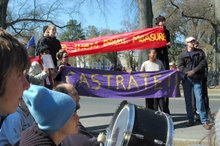




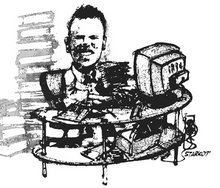
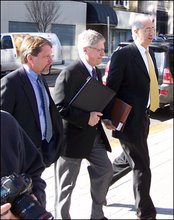
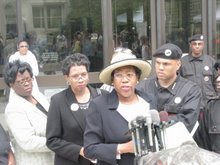
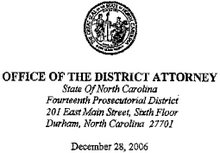
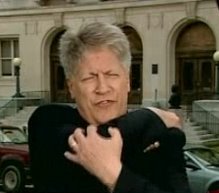

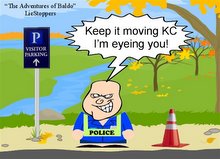



















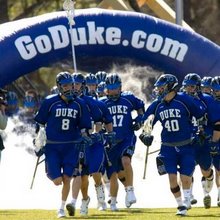

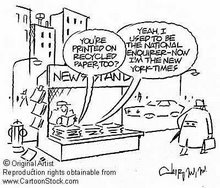

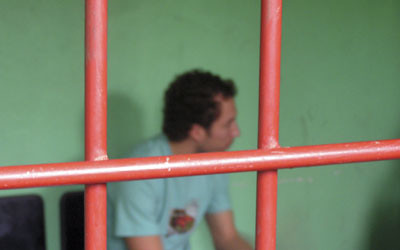
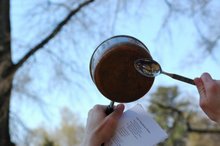


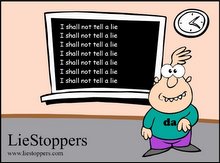






No comments:
Post a Comment